Enough doses coming to start Covid vaccinations in Australia despite EU threat, says federal government
As the EU threatens a ban on exports of coronavirus vaccines from the bloc, authorities in Australia stick to a late-February rollout.
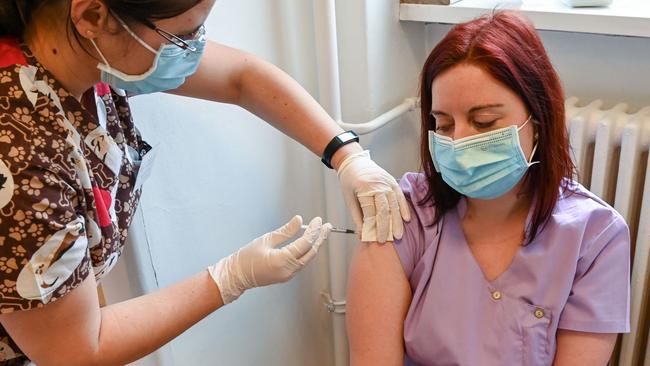
As the European Union declared itself as having the power to ration exports of coronavirus vaccines, health authorities in Australia predicted the country would proceed with its late-February rollout of the Pfizer vaccine, with AstraZeneca’s to arrive in March.
Federal acting chief medical officer Michael Kidd said on Saturday the government had conferred with pharmaceutical heads and they had disputed reports that Australia’s supplies would be affected by EU export bans.
“[Health Minister] Greg Hunt has reconfirmed this morning that the current vaccine schedule is on track, as we confirm with country heads of Pfizer and AstraZeneca,” Professor Kidd said on Saturday.
He welcomed the move by European authorities to approve the AstraZeneca vaccine but said Australia would “continue to prioritise safety above all else” and complete its own checks before rolling out vaccinations.
“Australia welcomes the announcement this morning from the European Medical Agency of the recommendation for the AstraZeneca vaccine for adults 18 years and over in the EU,” he said.
“The TGA [Therapeutic Goods Administration] will make its own independent decision based on the international evidence.”
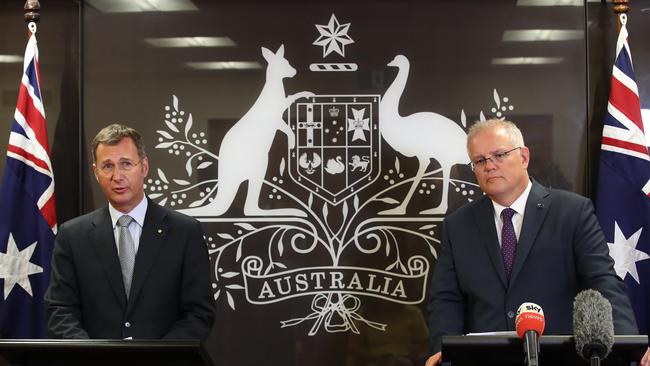
Professor Kidd said Pfizer had confirmed Australia would receive 80,000 doses per week from late February, while AstraZeneca would deliver 1.2 million doses from offshore in March, pending TGA approval.
COVID-19 vaccines will go where they’re needed first to protect vulnerable Australians. To learn more, visit https://t.co/g4IbPPSzQn#COVID19 #COVID19vaccine #coronavirus pic.twitter.com/XU6TlRo6Gw
— Australian Government Department of Health (@healthgovau) January 28, 2021
The EU on Friday announced an attempt to ban exports of coronavirus vaccines to countries including Australia so European citizens could be vaccinated first, potentially throwing the rollout of Australia’s program into disarray.
The EU wants to bring export controls on coronavirus vaccines made in the bloc, using a legal mechanism giving member-nations power to deny authorisation for vaccine exports if the company making them has not honoured existing contracts with the EU, according to the BBC.
The foreshadowed controls would affect some 100 countries worldwide – including the UK, the US, Canada and Australia – but many others, including poorer nations, are exempt.
British-Swedish firm AstraZeneca has said it can only deliver a fraction of its vaccine doses promised to the EU and Britain because of production problems, but both sides are demanding their pledges are met.
'It has all the hallmarks of a bureaucracy under huge pressure, acting before thinking'
— Sky News (@SkyNews) January 30, 2021
Former Permanent Secretary for Exiting the EU, Philip Rycroft says it is "very good news" the EU has "seen sense and withdrawn" plans to control vaccine exports.https://t.co/z6fdrg137r pic.twitter.com/ZBlt5R9A13
The EU threatened to restrict vaccine exports to Northern Ireland by overriding part of the Brexit deal with Britain that allowed the free flow of goods over the Irish border, but backed down after British Prime Minister Boris Johnson voiced “grave concerns”.
Vaccination rates have fallen across Europe as the squabble over vaccine access continues.
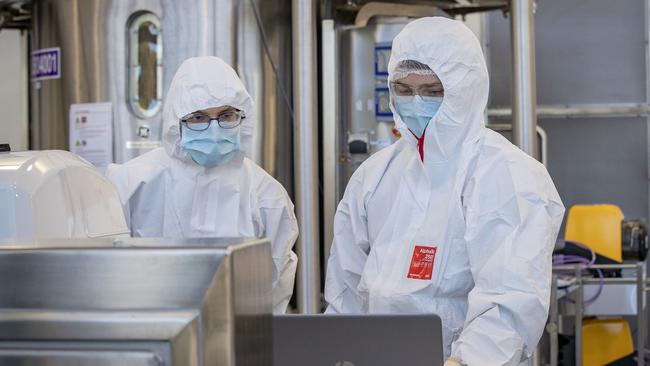
Delivery shortfalls for the AstraZeneca vaccine, for one, have led to delays in distribution in France and Spain, where in some regions authorities have been temporarily stopped from giving first doses.
Germany has reported shortages that will delay the rollout by 10 weeks, and Italy is running 10 days behind schedule.
Only 2 per cent of Europe’s population have received the first dose since the vaccine rollout began
The AstraZeneca vaccine on Friday became the third to get EU approval after Pfizer/BioNTech and Moderna, but it came under the shadow of the bitter diplomatic row.
“I expect the company [AstraZeneca] to deliver the 400 million doses as agreed,” tweeted European Commission chief Ursula von der Leyen, as she announced the authorisation.
The supply issue is a huge blow to Europe’s already stumbling vaccine rollout.
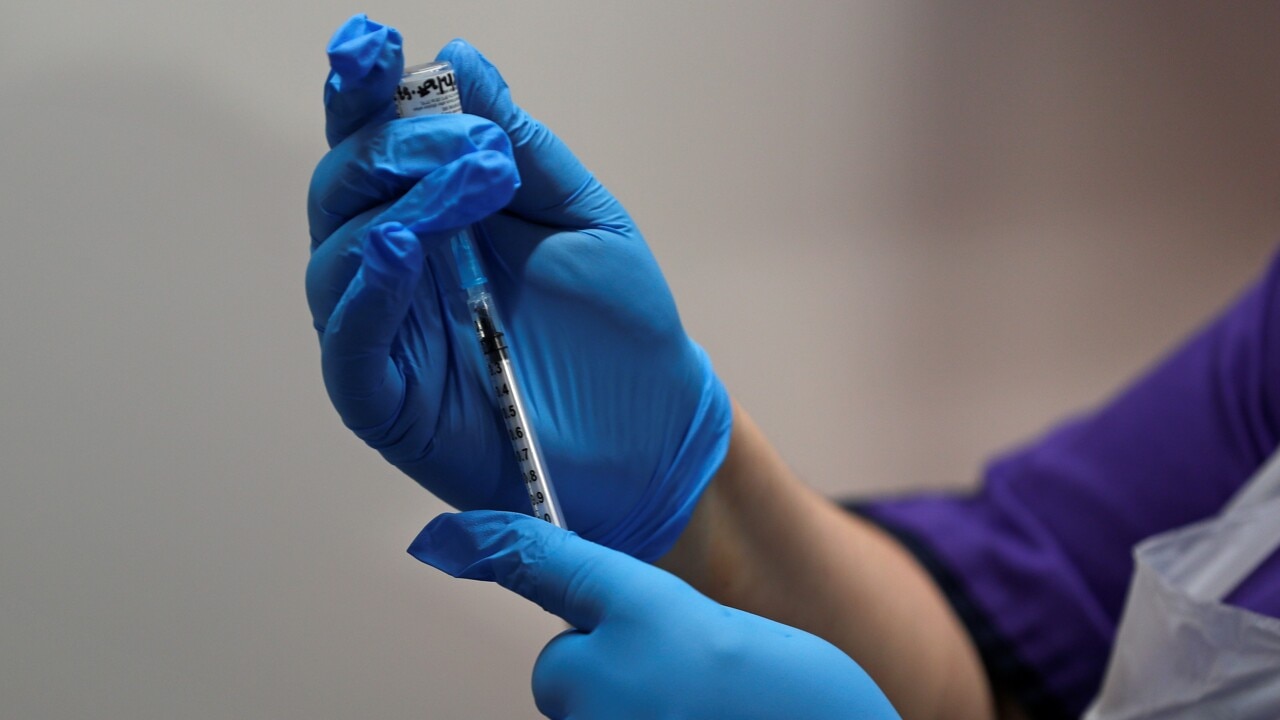
But the EU’s drastic plan to restrict exports of COVID-19 shots was more of a political ploy as prospects of successfully suing AstraZeneca Plc for reining in supplies of its vaccine appeared slim, lawyers and trade experts told Bloomberg.
The bloc’s executive arm announced on Friday that vaccine makers including AstraZeneca must obtain prior authorisation before sending shots manufactured in the bloc to other countries. “It’s pure damage control,” says Philip Haellmigk, lawyer in Munich who specialises in trade and customs controls, told Bloomberg.
“This is a reaction to the failure of the EU to order enough vaccines in time” and is now about using “the tool of export control licences to keep the vaccines in the EU,” he said, Bloomberg reported. The EU had administered just 2.5 doses per 100 people in the bloc, compared with 8.3 in the US and 11.9 in the UK, according to Bloomberg data.
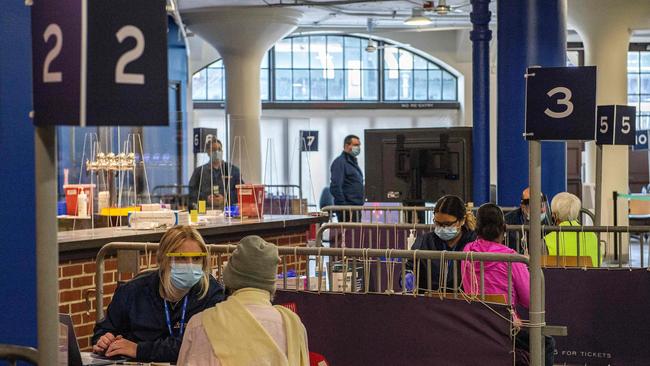
Meanwhile trial results released on Saturday showed pharmaceutical giant Johnson & Johnson’s coronavirus vaccine was 66 per cent effective overall in preventing COVID-19.
The vaccine candidate, developed by Johnson & Johnson by its Janssen Pharmaceutical Companies, was found to be 72 per cent effective in trials in the US, 66 per cent in Latin America and 57 per cent in South Africa in test subjects 28 days after vaccination.
It was also found to be 85 per cent effective in preventing severe disease across all regions.
The data was based on results from 43,783 participants recording 468 symptomatic cases of COVID-19, with trial participants showing immune responses within 14 days.
The EU moves have highlighted the impact of shortages on ambitious mass vaccination programs, even on wealthy nations, and fears are growing that the developed world is hogging doses, leaving poorer nations behind.
WHO chief Tedros Adhanom Ghebreyesus warned on Friday against “vaccine nationalism”, saying there was a “real danger that the very tools that could help to end the pandemic — vaccines — may exacerbate” global inequality.
Parts of Africa and Asia have only just started securing and rolling out vaccinations.
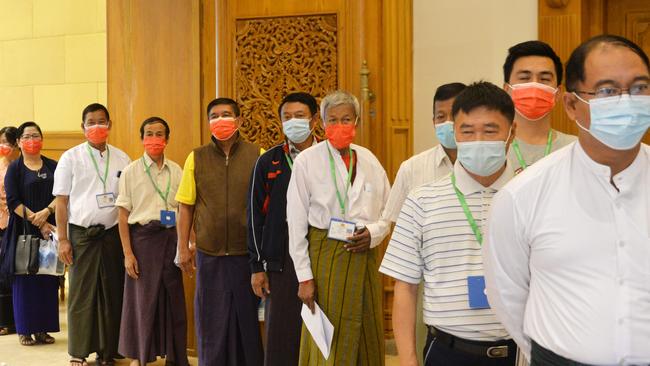
The global scramble for shots comes as more troubling data emerges on new variants of the coronavirus, which is known to have infected more than 101 million people worldwide.
Variants first detected in Britain, Brazil and South Africa are believed to be more contagious.
Scientists are concerned that the South African variant may elude some vaccines, a potential stumbling block in the global effort to defeat COVID-19 through mass inoculation.
In China, WHO experts continued their closely watched scientific mission Saturday in Wuhan, where the coronavirus first emerged in late 2019, hoping to uncover more clues about the origins of the pandemic.
They visited Jinyintan hospital, which received the first patients officially diagnosed with COVID-19.
With vaccine rollouts still in their early stages, movement restrictions remain among the few options for governments to try to stop the spread of COVID-19.
Surges have overwhelmed healthcare systems even in rich countries such as Britain and the US, while Mozambique President Filipe Nyusi warned that hospitals across southern Africa were “rapidly reaching the limit of their capacities”.
Citing concerns over the new strains, Germany on Friday said it would ban travel from countries where the variants are prevalent, starting this weekend, while Canada announced hotel quarantine for all new arrivals.
France has announced the closure of its borders to all non-EU travellers except for essential travel.
The pandemic has shredded the international sports calendar, with doubts growing about the already delayed Tokyo Olympics.
But there was good news out of Australia, which has largely kept its outbreak under control with aggressive travel restrictions.
Australian Open organisers said Saturday that between 25,000 and 30,000 tennis fans will be allowed to watch the season’s opening Grand Slam.
A decision on whether to extend Australia’s New Zealand travel suspension has been delayed until Sunday, just hours before it expires, with some COVID-19 test results still outstanding across the Tasman.
Quarantine-free travel from NZ was suspended for 72 hours from Monday after the country confirmed a case of the South African variant.
The suspension was extended for another 72 hours, until 2pm on Sunday, after further cases were detected.
Professor Kidd said a decision on ending the NZ travel suspension would be made on Sunday.
“The authorities in New Zealand are continuing to do an excellent job, following up the contacts of the three people who are diagnosed with a South African variant of COVID-19,” he said on Saturday.
A 56-year-old woman tested positive to the strain after completing 14 days in hotel quarantine in Auckland, after testing negative twice while in isolation. She travelled to about 30 venues while carrying the virus.
The strain, which is 50 per cent more transmissible than previous variants, has caused alarm among Australian authorities amid questions over the effectiveness of vaccines against it.
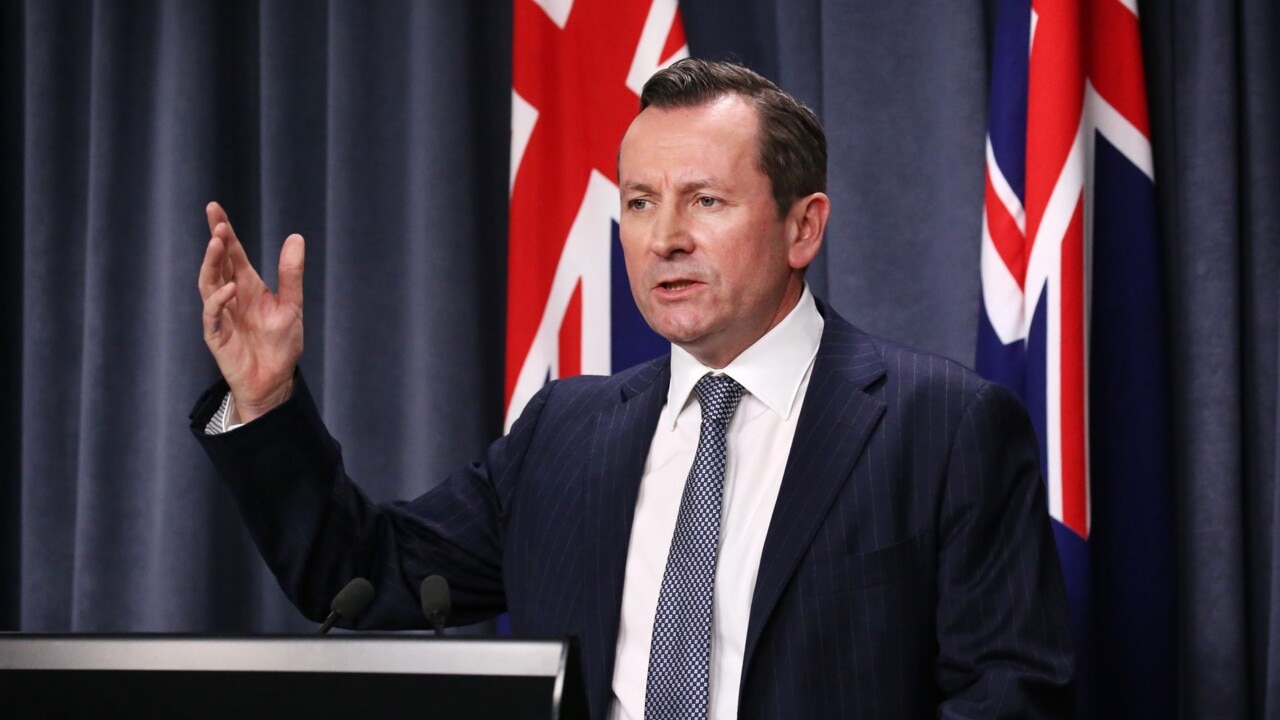
Australia confirmed its 13th day of no community transmission on Saturday, marking the country’s longest streak without a case since March.
Major airlines are welcoming new freedoms for travellers after WA loosened its border restrictions with Victoria and Queensland.
Virgin said it was still running limited services between Melbourne and Brisbane to Perth, but hoped to increase the number of flights with time.
Biden admin. orders additional 200 million doses of Covid-19 vaccine, a move that could provide enough doses for nearly every American to get fully inoculated by the end of the summer, a senior admin. official says. https://t.co/AJzhLFkoAI
— NBC News (@NBCNews) January 30, 2021
The novel coronavirus has killed at least 2,206,873 people since the outbreak emerged in China in December 2019, according to a tally from official sources compiled by AFP on Saturday night.
At least 102,002,160 cases of coronavirus have been registered. Of these, at least 61,888,000 are now considered recovered.
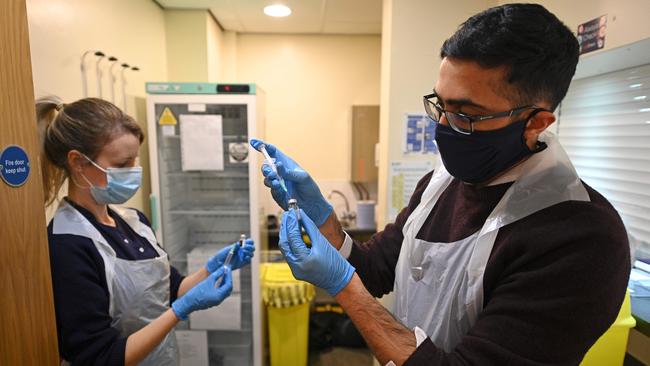
Vaccination is already easing Britain’s COVID epidemic with early data showing it is definitely reducing cases.
Research due to be published within days would provide real-world evidence that Britons were being protected, including suggestions that the effect was still building a month after one dose, Anthony Harnden, deputy chairman of the Joint Committee on Vaccination and Immunisation, said.
With fears about an EU export ban on vaccines, Professor Harnden said plans were in place for people to be able to mix and match vaccines if second doses of the Pfizer jab were unavailable.
On Friday, official British figures showed that another 414,419 people had been given a first dose, taking that total to 7.9 million, suggesting the National Health Service was more than halfway towards its target of immunising the four most vulnerable groups by the middle of February.
Protection is thought to take at least two weeks to build but Professor Harnden said it was clear that mass vaccination was working to bring down cases.
“The preliminary data indicate a vaccine effect from the first dose in both younger adults and in older adults over 80. The effect seems to increase over time,” he said. “It is possible that we may get stronger and better long-term protection by a delayed second dose.”
Initial vaccination focused on the over 80s and NHS and care staff and has since widened out to younger people and the clinically vulnerable.
With The Times and AFP







To join the conversation, please log in. Don't have an account? Register
Join the conversation, you are commenting as Logout